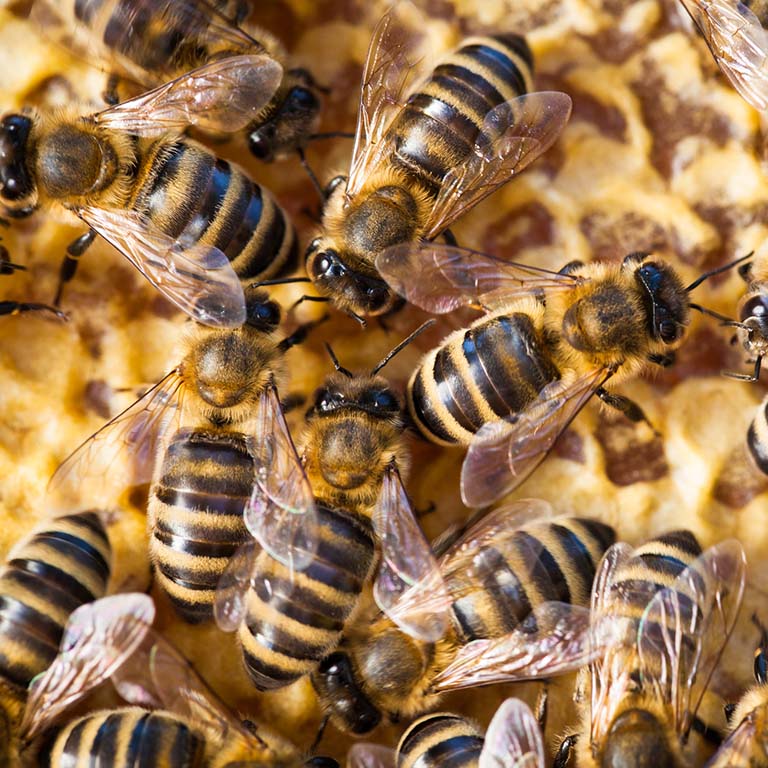Honey bees provide a valuable service to plants and humans, pollinating more than 30% of the world’s crops. As you’ve likely heard, multiple factors—including industrial agriculture, bee-killing pesticides, infection with pathogens, and climate change—have placed the health of honey bee populations in jeopardy, potentially compromising the world’s food supply. Dr. Eric Smith, a postdoctoral fellow in Associate Professor Irene Newton's lab in Indiana University’s Department of Biology, is invested in revitalizing honey bee populations by studying how their microbiomes support and influence bee function.
Though we spend countless hours cleansing our bodies and homes of bacteria, viruses, and other microbes, their presence can also benefit their host organisms. Scientists have known for some time that almost all living organisms have symbiotic microbes that live within and on them and are beneficial to them. For instance, they recognize the importance of microbes for digestion and nutrient absorption, but they’re only beginning to understand the many other ways microbes aid their hosts. As there is still much that science doesn’t understand about these processes, Smith’s work focuses broadly on how microbes impact the biology of the hosts they live in.



 The College of Arts
The College of Arts